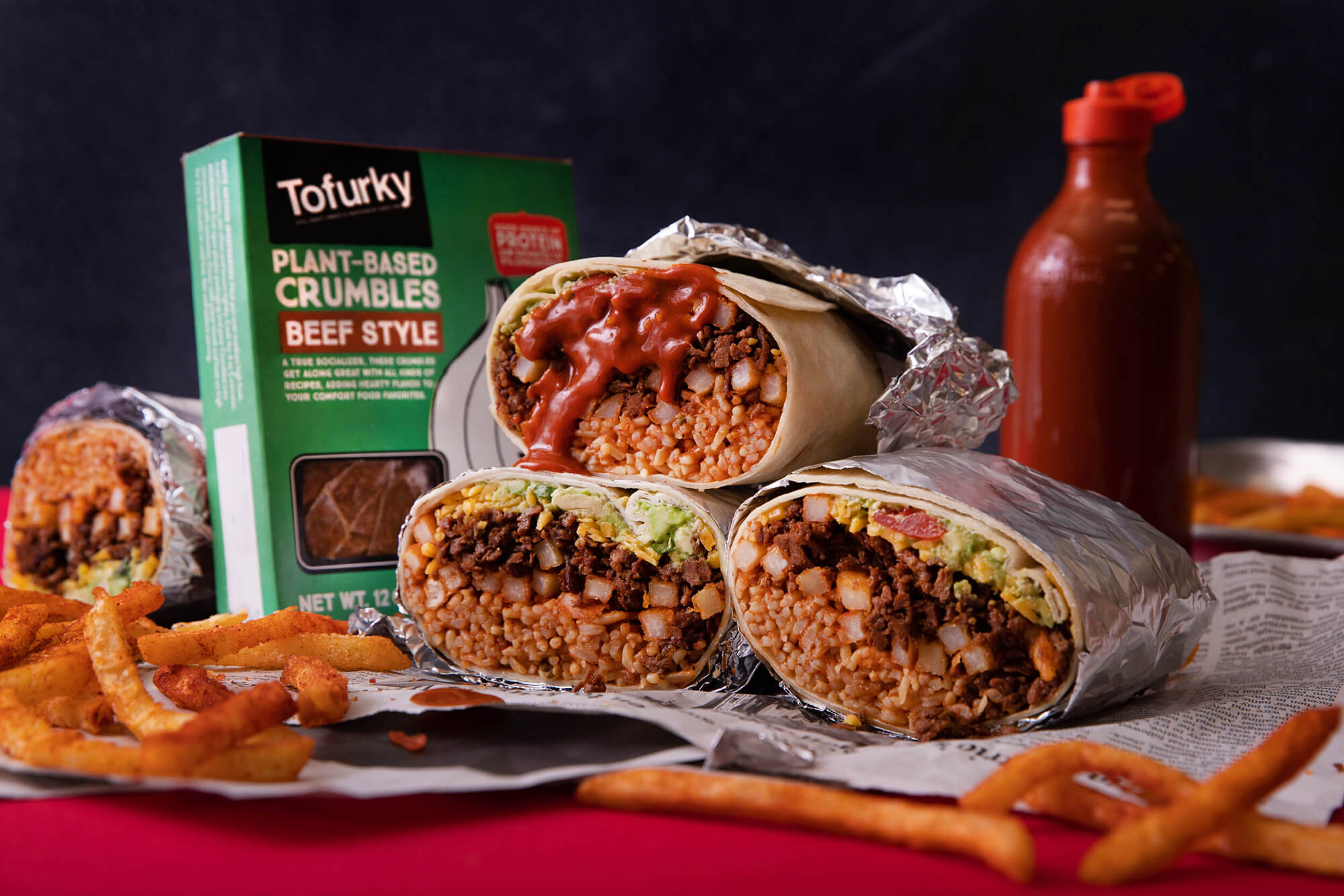Fads Are for Instagram, Trends are Lasting Change
There’s a lot of evidence showing that plant based foods aren’t just a fad but rather a trend that is making huge waves in the way consumers cook, eat, and shop. The dairy industry, for example, has taken a beating in the past 10 years. Due to tariffs, low milk prices, and growing interest in plant based milks, milk sales plummeted by $1.1 billion in 2018 and the downward trend is continuing. Not only are consumers leaning more towards plant based milk options, but per capita consumption of milk is declining and population growth is slowing as well. In other words, there are fewer people drinking milk, they are drinking less of it (long gone are the Leave it to Beaver days of drinking milk at all 3 meals), and there is much more competition from a wider field of plant based options.

One testament to the increasing market share of plant based foods, dairy in particular, is the decision by some forward thinking companies to venture outside their traditional product lines and into the plant based category. Chobani recently introduced a line of oatmilks and oat-based yogurts to complement their dairy product line. This development is notable because most niche brands tend to pick a lane—dairy or nondairy—and stay in it. Further, the dairy and nondairy sectors have been mostly at odds with one another, even leading to litigation around the term “milk” and who gets to use it. Chobani’s move is noteworthy because, as they expand into the plant based realm, they are continuing to innovate in the dairy sector as well, with a new line of dairy based creamers and new yogurt products. Expect to see more brands follow Chobani’s lead.
Other brands that specialize in plant based foods are seeing big gains. For 4 weeks in December 2019, JUST Egg, a liquid egg substitute made from mung beans, outsold all plant based dairy and proteins at a major grocery chain. This is all the more notable when you consider JUST Egg’s high price point. Part of the success of products like JUST Egg is that they help to promote a plant based lifestyle that doesn’t involve hardship or deprivation. You don’t have to live on lentil loaf and seitan anymore if you want to avoid animal products. You can have quiche and breakfast burritos and pretty much any delicious thing your heart desires.

Smarter Products = Fewer Consumer Habits to Break
This shift in plant based foods towards products that mimic animal-derived foods explains part of why these foods are having such a moment (and a moment that is likely to turn into a permanent change in the way we all eat). Getting consumers to switch from hamburgers to black bean burgers or from eggs to tofu is a way tougher sell than getting them to swap their burger for a Beyond Burger or their eggs for JUST Egg. These products don’t require a real shift in consumer behavior—you can grill up a Beyond Burger pretty much the same way you would a beef patty, and JUST Egg is even easier to cook than actual eggs. Consumers no longer have to change the way they cook to fit a vegan diet. They can just substitute one product for another.
But there’s more to the story than convenience. Climate change is weighing heavier on the average consumer’s mind. Ethical vegans are going to eat plant based no matter what, but normies who have traditionally relied on animal products are shifting more of their grocery budget to plant based options due to the climate crisis. Graphs and charts showing the carbon footprint of animal products, from beef to dairy, are pretty damning and ultimately show that eating less meat is more sustainable than eating higher quality meat (like grass fed beef, for example). Thus the surge in people eating a flexitarian diet—maybe the average consumer isn’t ready to become a vegan, but many of them are willing to switch from milk to oatmilk or throw a plant based protein into the dinner rotation.
Demand = Larger Scale = Eventually, Lower Price
As more consumers opt for plant based foods, it will be interesting to see how the prices of these foods change in relation to those of animal products. As it stands, plant based foods generally carry a heftier price tag than their animal derived counterparts. For example, while Chobani oatmilk costs $0.10 per ounce, conventional milk is only $0.02 per ounce (organic milk is more like $0.05 to $0.07 per ounce, so it stands to reason that consumers who are already used to paying more for milk might switch from organic dairy to dairy alternatives). Why are animal products cheaper than plant based ones if the environmental impact is so high?
It’s complicated. Supply and demand, scale, ingredient sourcing, and R&D costs are all at play. Also consider that agricultural subsidies keep the prices of animal products artificially low. Subsidies offset the cost of growing corn and soybeans, a large percentage of which are turned into livestock feed, and those subsidies are not extended to, say, oats or almonds (the only crops currently subsidized are corn, wheat, soy, cotton, and rice).

That said, you can expect the difference in price to even out due to plant based food companies expanding (thus benefiting from economy of scale–see JUST Egg as a prime example); larger, more traditional brands entering the plant based market and using their existing supply chains to offer these products at lower prices; and consumers responding positively to exposure to a wider variety of tastier, more versatile, more convenient plant based products.
TL;DR: While animal products aren’t about to go away, consumer demand for plant based options is only going to increase over time, driven by climate change awareness, ethical concerns, convenience, flavor, and, eventually, cost.

